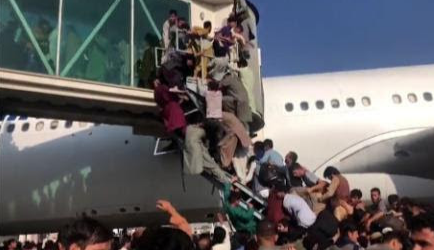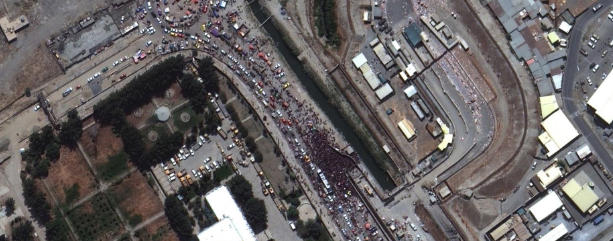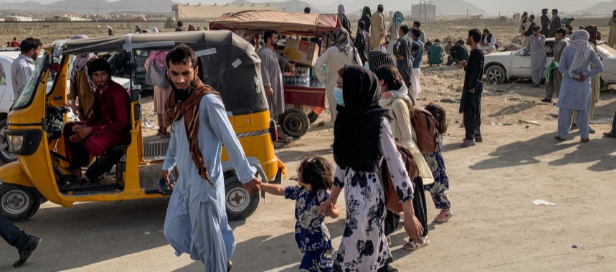On September 11, 2001, America faced one of it’s deadliest terrorist attacks ever: the attacks on the Twin Towers, Pentagon, and an attempted attack on Washington DC. In response to the brutal hijackings, President George W. Bush vowed to “win the war against terrorism,” and invaded Afghanistan, in hopes to find Osama Bin Laden, a key planner of the 9-11. In October of 2001, Operation Enduring Freedom began, and US forces initiated airstrikes on al-Qaeda and the Taliban. Quickly, Taliban forces fell and the Taliban regime collapsed.

Many wonder after the chaos that has ensued in recent weeks why we didn’t stop there. How did this revenge mission turn into decades of failed nation building? As John Oliver explained it; we built a bi-partisan “crusade for human rights” with overwhelming political consensus.
The US soon propped up an interim government, and would stay in Afghanistan for the next 20 years, spending billions on training Afghani soldiers and developing infrastructure for a self-sustaining country.
America’s reconstruction of Afghanistan focused on counter-terrorism to build a lasting peace. Getting Bin Laden was not enough at this point, they wanted to eradicate al-Qaeda. A drastic decrease in troop presence did take place, but we continued to support Afghan soldiers and the Afghan government through air support. We also sent a massive influx of reconstruction money for building bridges, schools, roads, and other key health and infrastructure projects. So how did we get here, where the Taliban has so easily taken back control of the millions of Afghani’s within the war-torn country?
America’s massive campaign of bombings caused high civilian death tolls; and outside Kabul in the rural regions, Taliban support grew substantially. While we beat the Taliban, ironically, our presence brought them back. Every year, they took over a little bit more of the country. The fact that the Afghani president failed to include Taliban representatives in most government decisions poured fuel to the fire.
Eventually, the Trump administration decided to pull out of the country. The Biden administration decided to follow through with the plan, and an increase in the Taliban’s control was inevitable. The US, which had provided air power, would now stop. Afghan soldiers would be on their own. The issue was the rapid shift of power from the American soldiers to the Afghans. Rural districts were taken swiftly, and the violence escalated in May 2021.
The capital, Kabul, fell quickly, and as we all now know, chaos ensued. We’ve all seen the devastating photos of Afghans fleeing by holding on the outside of a jet, and falling to their death; photos of the whippings that journalists sustained from Taliban imprisonment; Taliban fighters sitting in abandoned high tech military equipment; and crowds gathering at the Kabul international airport.


All of this raises an important question: after the thousands of lives lost, the hundreds of billions spent, and the decades of conflict, what did we really achieve? Has a strong and free democracy flourished? No. Have we ended the Taliban? Clearly not. Did we achieve the human rights gains we hoped for? Probably not.
As the new Taliban government takes hold with a near zero US military presence, our military leverage has faded. Interaction with this new government is inevitable, and even experts can’t predict how this new government will conduct itself. It could decide to avoid the pariah image, and give some leeway on women’s rights. It could also go farther right, and stress a stricter interpretation of Sharia Law.
If one thing is clear, the war in Afghanistan failed miserably in most of its tasks. Policy makers must learn from the war and its mistaked to drive future military and international policy to avoid such a costly disaster again.

